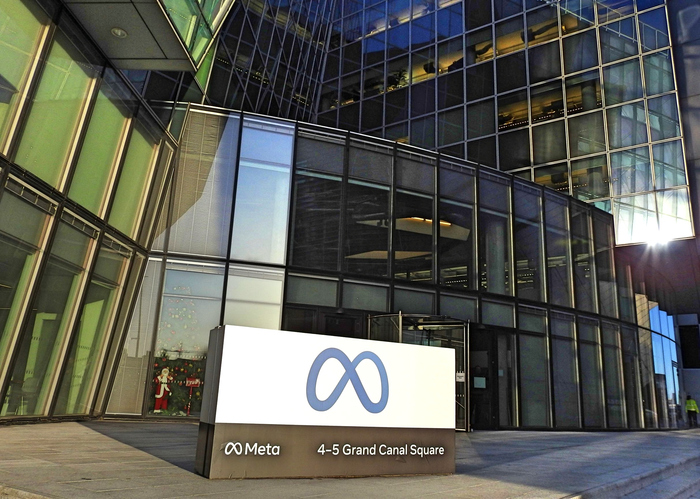Reporting Initial Coin Offering (ICO) Scams
Depending on the case, the problem with ICOs is that they can be coupled with an unregistered security, or there can be other issues with the exchange itself, which raise the number of problems, including the ICO being used to launder the funds for criminal activity.
May 14, 2025

This information is provided for educational purposes only by Kohn, Kohn & Colapinto and does not constitute legal advice. No attorney-client relationship is created by accessing this content. Laws and regulations may change, and this material may not reflect the most current legal developments. If you believe you have a whistleblower claim, consult a qualified attorney to discuss your specific circumstances.
Depending on the case, the problem with ICOs is that they can be coupled with an unregistered security, or there can be other issues with the exchange itself, which raise the number of problems, including the ICO being used to launder the funds for criminal activity.
The SEC has observed a rise in initial coin offerings (ICOs) in recent years, recognizing them as a significant avenue for raising capital or engaging in investment opportunities.
An ICO serves as the cryptocurrency sector’s parallel to an initial public offering (IPO). When a company wants to gather funds to create a new coin, application, or service, they can initiate an ICO to collect the required money.
Within the cryptocurrency community, ICOs have become the preferred way to secure funding. A notable example of a legitimate and successful ICO is Ethereum’s, which garnered $18.4 million in July 2014. Ethereum has since become one of the most substantial cryptocurrencies available.
ICOs may be either private or public, which can potentially restrict the accessibility of information concerning these offerings.
Wondering when an ICO turns into a scam? Keep reading to gain further insight into the world of Initial Coin Offering (ICO) scams and fraudulent practices.
We are delighted to welcome the former acting chair and commissioner of the SEC, Allison Herren Lee, to our firm.
Now Of Counsel at Kohn, Kohn & Colapinto, Allison Herren Lee is ready to serve and protect whistleblowers, and help them seek rewards under the Dodd-Frank Act and SEC Whistleblower Program. If you’re an SEC whistleblower seeking to report a concern, contact our law firm today to speak confidentially with Allison Lee.
Fraudulent Initial Coin Offering Schemes
Fraudulent ICOs often appear as quickly executed schemes that seem too alluring to be genuine. Some companies have made outrageous promises, like claiming a 13-fold profit in less than a month after securing $15 million, or making false statements about earnings and returns on investment.
These problems may be accompanied by additional issues such as the security being unregistered or other flaws within the exchange itself, which can increase the number of complications and subsequent penalties. There may also be concerns that the ICO is being used to launder money for criminal activities.
The SEC has previously cautioned investors in this area, highlighting that it is a relatively new field with fewer safeguards for investors. The global nature of ICOs heightens the risk because it enables advanced forms of traditional pyramid schemes that may be difficult to recognize. ICOs are meant to be registered with the SEC, but many remain unregistered, despite lack of formal exemption.
Blowing the Whistle on ICO Frauds and Scams
The Securities and Exchange Commission (SEC) classifies certain crypto tokens and exchanges as a security. The Commodity Futures Trading Commission (CFTC) treats them as a commodity or currency exchange. The Financial Crimes Enforcement Network (FinCEN), a division of the Treasury Department, considers crypto exchanges a money services business. FinCEN is specifically tasked with combating money laundering, terrorist financing, and other financial crimes that are frequently carried out through crypto companies.
The SEC has generally led the way on regulation and enforcement of ICOs. However, if other problems like money laundering arise, a different organization might collaborate with the SEC or address the issue independently. In 2018, the U.S. Department of Treasury declared that any ICO substituting money with cryptocurrency must adhere to Anti-Money Laundering laws and the Bank Secrecy Act. However, the lack of crypto specific rules for these laws leave them susceptible to ICO violations.
Whistleblower Reward for Reporting ICO Fraud
As with any investor fraud, whistleblowers can gain large financial rewards from reporting ICO Scams.
SEC Whistleblower Reward Program
Established under the Dodd-Frank Act, the SEC Whistleblower Reward Program is administered by the SEC Office of the Whistleblower. The program is designed to protect investors, maintain the integrity of U.S. capital markets, and promptly hold accountable those who violate securities laws. Authorized by Congress, the Securities and Exchange Commission can provide monetary rewards.
Eligibility for rewards requires that individuals come forward with original, credible information leading to an SEC enforcement action. To qualify for an award, the imposed sanctions must exceed $1 million, with the award amount ranging from 10 to 30 percent of the collected money.
Click here to learn more about the SEC Whistleblower Reward Program
FinCEN Whistleblower Rewards
The FinCEN Whistleblower Program enables individuals to receive rewards for supplying original, timely, and credible information concerning violations of the Bank Secrecy Act (BSA) or other FinCEN regulations.
To be eligible for an award, the sanctions must be over $1,000,000, with the potential reward amounting to up to 30 percent of the money collected.
Click here to learn more about the FinCEN whistleblower program.
CFTC Whistleblower Program
Under the CFTC Whistleblower Program, individuals who voluntarily submit information leading to a successful enforcement action with monetary sanctions over $1 million are entitled to an award. The award varies between 10-30% of the funds collected by the government in the action.
These programs are indicative of the multifaceted regulatory environment surrounding cryptocurrencies and highlight the concerted efforts by various government bodies to enforce compliance and protect investors.
Click here to learn more about the CFTC whistleblower program.
Examples of Fraudulent ICOs
The SEC has charged crypto companies for fraudulent ICOs in prior cases. In 2021, the commission charged Loci Inc. and its CEO John Wise for making materially false and misleading statements in connection with an unregistered offer and sale of digital asset securities. The government fined Wise $7.6 million.
In 2022, the SEC charged Craig Sproule and two companies he founded, Crowd Machine, Inc. and Metavine, Inc., for making materially false and misleading statements in connection with an unregistered offer and sale of digital asset securities. The government ordered the companies to pay back all of the $33 million fraudulently acquired and fined Sproule $195,047.
In 2020, the SEC charged Kik Interactive for failing to register its ICO as a security and was fined $5 million.
Seek Legal Assistance
Although it’s not mandatory to have a lawyer when filing a whistleblower case with the SEC, engaging a whistleblower attorney can be beneficial. Their expertise in this intricate legal field can enhance your case, and they can enable you to submit your complaint anonymously.
Our Firm’s Cases

Environment & Human Rights Violations Exposed
Oil industry’s environmental crimes and cover-up in Colombia have been exposed. Whistleblower Andrés Olarte Peña, with the support of his attorneys Kohn, Kohn & Colapinto and the damning evidence compiled in the Iguana Papers, is calling for an investigation into Ecopetrol and its executives by the Colombian government and the U.S. Securities and Exchange Commission.

$30 Million Award
Protecting the confidentiality of Wall Street whistleblowers is among the most important breakthroughs in federal whistleblower law. Under the Dodd-Frank Act, whistleblowers can file anonymous cases, and everything about their case, including who they sued, remains secret.

$13.5 Million Award
Our firm represented an anonymous whistleblower, who on May 17, 2021, received a whistleblower award of almost $13.5 million. The SEC has issued more than $31 million in whistleblower awards related to this case.

![Reporting Recordkeeping Failures To The Sec [2025 Guide]](https://kkc.com/wp-content/uploads/2025/01/Recordkeeping-Failures.jpg)




